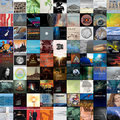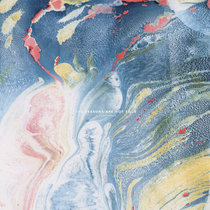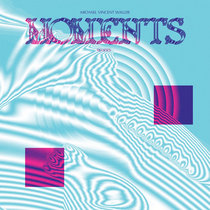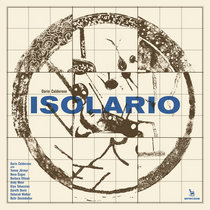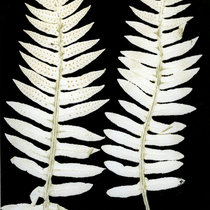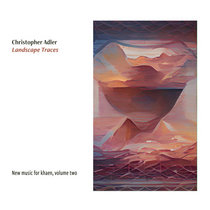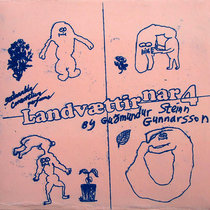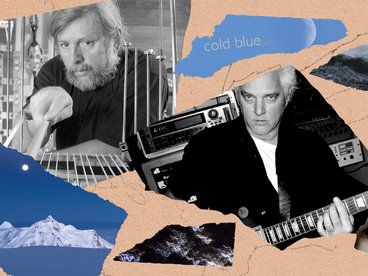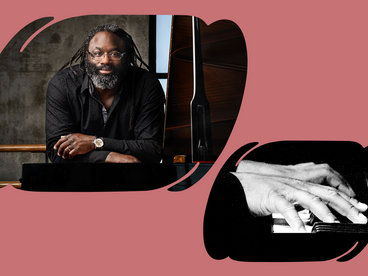
Six apparitions de Lénine sur un piano – André Ristic
from Wanmansho by Aventa Ensemble
about
“Six Apparitions de Lénine sur un piano was intended as the sequel to Sonate de Carnaval, which Aventa premiered in 2009. My plan with the original work was to explore the general sonata form and see if I could find some elements that would fit with my usual musical (somewhat delirious) ideals. As I like to “search and explore” in all of my pieces, I put myself in the position of a man stranded on an island, having to build everything with what is available on site, the island being the sonata form and in particular a few representatives of its offspring. I was, however, not completely satisfied with the completed work, because it became apparent to me that I had only explored but a small part of a bigger island than I had originally thought it was – probably because of my lack of good cartographic instruments for the purpose.
Six Apparitions de Lénine sur un piano is a second visit to this island, more precisely to the ‘scherzo’ region of it. In the past, the term scherzo used to imply some degree of légèreté, eventually even satire or joke (this is Charles Ives’ interpretation in a famous piano Trio). I envisioned the work as a collection of everything ranging from vaguely joyous to pathetically comic and caricatured, and as such the piece is a catalog of positive clichés (cliché, in the photographic sense; positive, as opposite of sad, dark, even serious or introspective), the whole of them organized in a zero-thematic scherzo form, with the piano as the central instrument – perhaps representing the composer walking or running through an environment populated by exhilarating, “phantasmical” musical objects, assembled in short obsessions.”
The title refers to a painting by Salvador Dali (1931) depicting a man sitting in front of (but quite far from) a piano, whose keyboard sports 6 regularly spaced phosphorescent busts of Vladimir Lenin. There are other psychoanalytically interesting elements (ants, cherries etc.) on the painting making it a typical ‘chronically paranoia’ Dali work. In the music, the piano part is the only one having a link with the painting (it has 6 sections, presenting musical material that I associate on an intuitive level with Poland, Russia, communism, tyranny). All of the rest has no relation with the painting, but I decided on the title a little like a novelist or filmmaker would choose a single quote for the title of the work – perhaps a simple sentence that might have little or no link with the plot of the whole work. Also, I think the composition and the painting share a desire for intuition, irony, and enigma.” – André Ristic
Six Apparitions de Lénine sur un piano is a second visit to this island, more precisely to the ‘scherzo’ region of it. In the past, the term scherzo used to imply some degree of légèreté, eventually even satire or joke (this is Charles Ives’ interpretation in a famous piano Trio). I envisioned the work as a collection of everything ranging from vaguely joyous to pathetically comic and caricatured, and as such the piece is a catalog of positive clichés (cliché, in the photographic sense; positive, as opposite of sad, dark, even serious or introspective), the whole of them organized in a zero-thematic scherzo form, with the piano as the central instrument – perhaps representing the composer walking or running through an environment populated by exhilarating, “phantasmical” musical objects, assembled in short obsessions.”
The title refers to a painting by Salvador Dali (1931) depicting a man sitting in front of (but quite far from) a piano, whose keyboard sports 6 regularly spaced phosphorescent busts of Vladimir Lenin. There are other psychoanalytically interesting elements (ants, cherries etc.) on the painting making it a typical ‘chronically paranoia’ Dali work. In the music, the piano part is the only one having a link with the painting (it has 6 sections, presenting musical material that I associate on an intuitive level with Poland, Russia, communism, tyranny). All of the rest has no relation with the painting, but I decided on the title a little like a novelist or filmmaker would choose a single quote for the title of the work – perhaps a simple sentence that might have little or no link with the plot of the whole work. Also, I think the composition and the painting share a desire for intuition, irony, and enigma.” – André Ristic
credits
from Wanmansho,
released October 1, 2021
André Ristic was born in 1972 in Quebec City, where he received his basic musical training. In the 1990’s, he continued his studies in Montreal in piano, harpsichord, composition and mathematics. He has performed with Ensemble contemporain de Montréal, Trio Fibonacci and l’Ensemble Musiques Nouvelles. An internationally recognized composer, André’s works share the common themes of humor and speed. Depending on the phase of his career, his works can often be quite esthetically distinct from one another.
André Ristic was born in 1972 in Quebec City, where he received his basic musical training. In the 1990’s, he continued his studies in Montreal in piano, harpsichord, composition and mathematics. He has performed with Ensemble contemporain de Montréal, Trio Fibonacci and l’Ensemble Musiques Nouvelles. An internationally recognized composer, André’s works share the common themes of humor and speed. Depending on the phase of his career, his works can often be quite esthetically distinct from one another.
license
all rights reserved
tags
about
Redshift Music Vancouver, British Columbia
Redshift was founded in Vancouver, Canada with a focus on championing the music of contemporary composers.
contact / help
If you like Redshift Music, you may also like:

